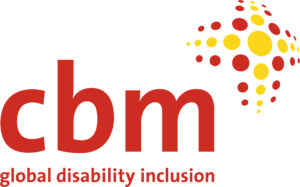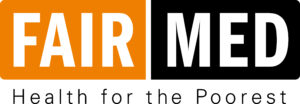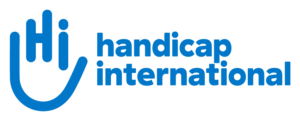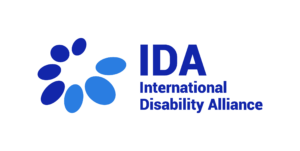SDDC is a Swiss based network advocating for the rights and inclusion of persons with disabilities in Switzerland's international cooperation.
Copyright CBM
What's new?
In honor of International Women’s Day on 8 March 2023, the SDDC consortium members in Nepal and their partner organizations dedicated to working with people with disabilities put up a photo exhibition at the Staff College in Jawalakhel, Lalitpur, Nepal. The exhibition “My Lens, My Reality” showcased remarkable achievements of women with disabilities who have triumphed over multiple forms of discrimination.
As the chief guest at the event, Honorable Member of Federal Parliament Sobita Gautam highlighted the importance of technology and innovation in development. Hon. Gautam shared positive developments that disability rights advocates and the government of Nepal have made towards the inclusion of people with disabilities and improving accessibility.
The event was inspired by a photovoice study on Nepal’s women with disabilities, conducted by the University of Bern. The Country Coordinator of FAIRMED, Nirmala Sharma, shared the summary of the study and spoke about the importance of creating a supportive environment that enables women with disabilities to contribute significantly to society.
To mark this important day, a panel discussion on the technological barriers and enablers of inclusion for women with disabilities in the social, economic, and political sectors” instead of “the technological barriers and enablers of inclusion of women with disabilities in the social, economic, and political sectors was held at the event. Suraj Sigdel, Country Director, CBM- Global Nepal, emphasized the importance of providing digital accessibility to women with disabilities. He said, “To lead the future, women with disabilities must have access to the digital world.”
Pauline Nadim Ducos, Regional Program Director of Handicap International, expressed her appreciation for the Swiss Disability and Development Consortium, partner organizations of persons with disabilities in Nepal, and the ten women who shared their stories through photography. She said, “Your collective efforts have contributed to raising awareness and promoting inclusion for persons with disabilities, particularly women in Nepal.” Ducos appealed to all development partners, the government, INGOs, local NGOs, and organizations of people with disabilities to continue working collaboratively towards reducing inequalities by developing innovative and transformative solutions.
Distinguished guests also attended the event, including Honorable Members of Federal Parliament Sobita Gautam and Prakash Pantha, both of whom have been strong advocates for the rights of persons with disabilities and Honorable Member of Provincial Assembly Laxmi Ghimire, who has actively promoted inclusion and accessibility for persons with disabilities at the local level.
Devi Dutta Acharya, President of the National Federation of Disabled-Nepal, emphasized the inclusion of the most marginalized women living in remote areas of Nepal to ensure ‘leave no one behind.’ Overall, the event emphasized the importance of creating an inclusive society that values diversity and promotes equality, empowering women with disabilities, and reducing inequalities by developing innovative and transformative solutions.
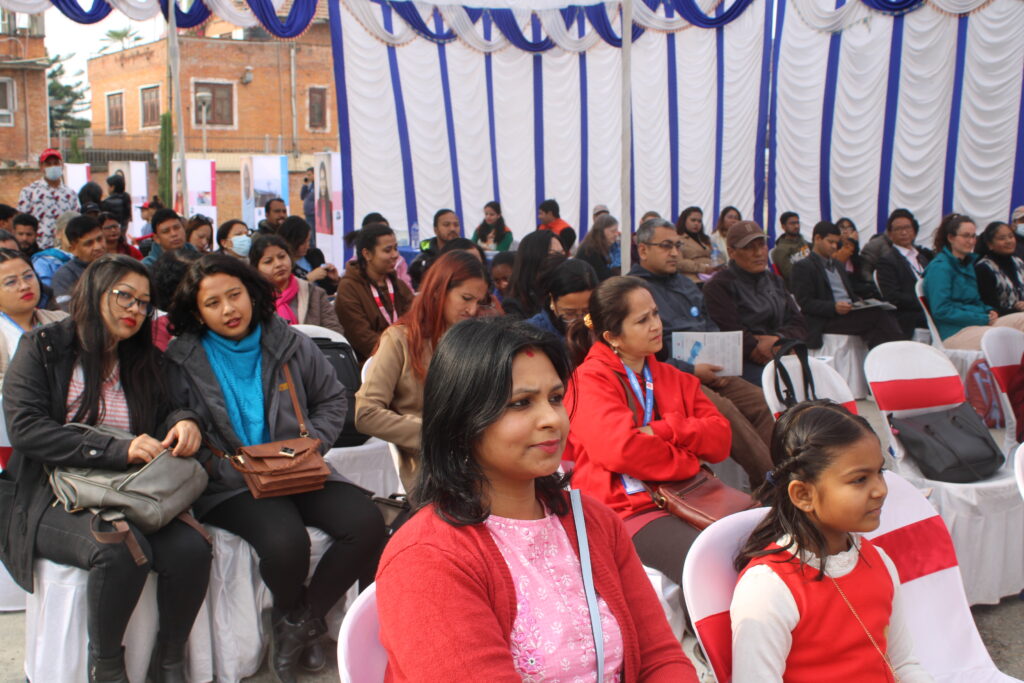
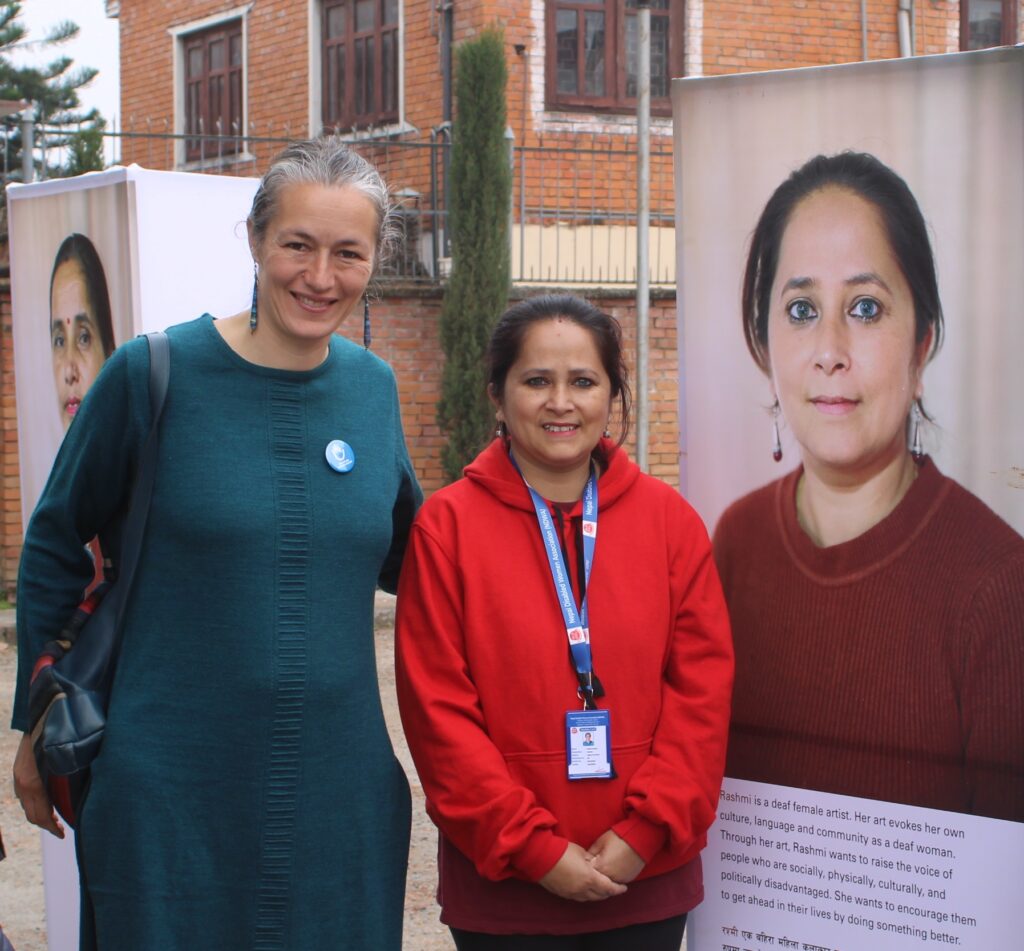
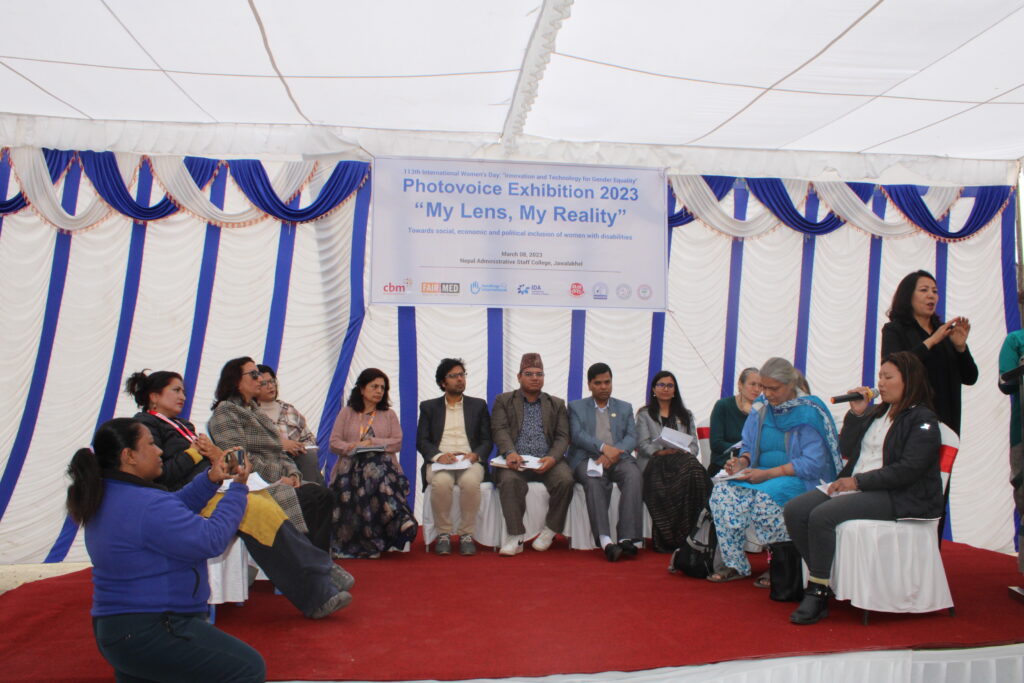
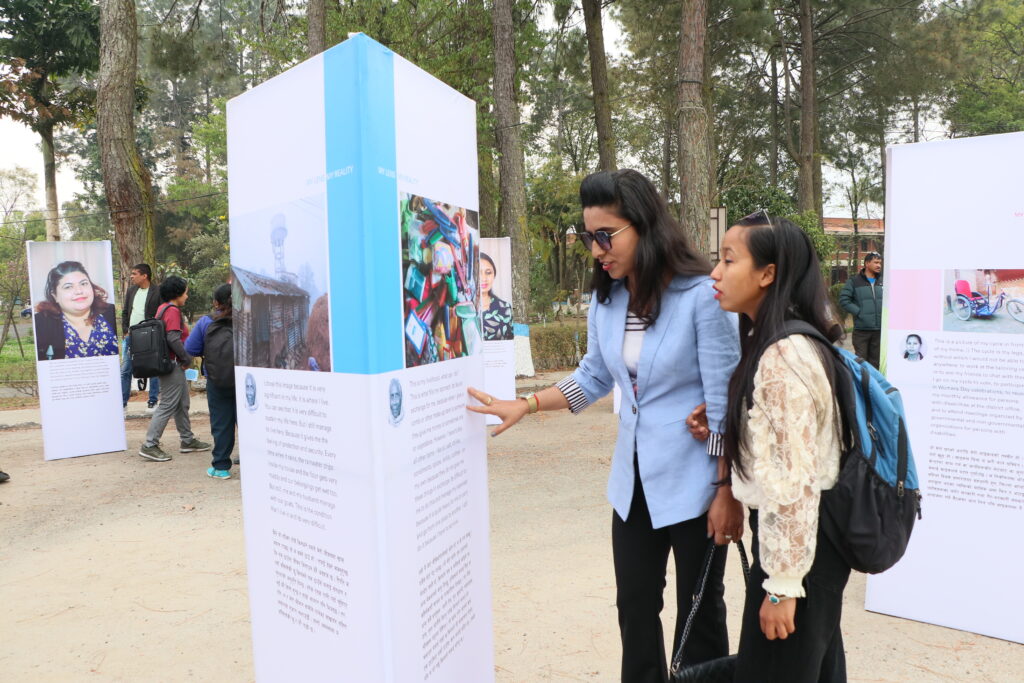
The exhibition “My Lens My Reality” was shown at the International Cooperation Forum in Geneva on 15 February 2023. Representatives from government, academia, the private and financial sectors, NGO sector and civil society, gathered to exchange on this year’s topic “Education for Future” and the achievement of SDG 4 (education).
CBM Switzerland, together with Handicap International Switzerland and the International Disability Alliance were there representing the SDDC coalition and advocating for inclusive education for all.
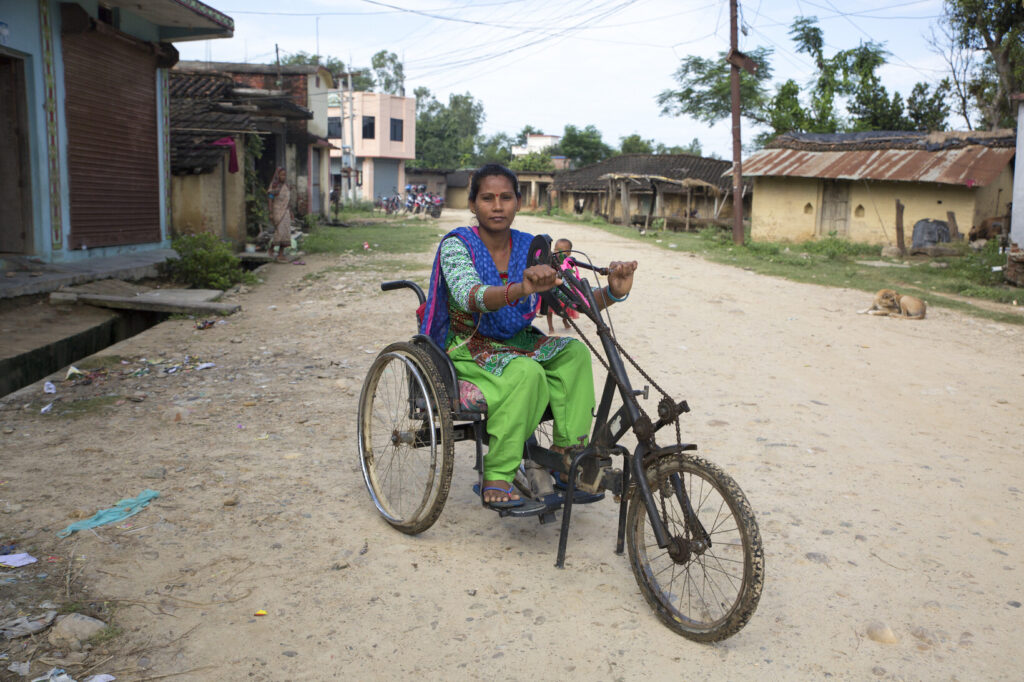
The study on “Women with disabilities in Nepal”, on which the exhibition is based, clearly demonstrates that women and girls with disabilities are often denied access to education due to stigmatisation and discrimination. When they do attend school, accessibility is rarely guaranteed; reasonable accommodation and personal assistive devices are lacking. This impedes on their ability to fully benefit from the lessons.
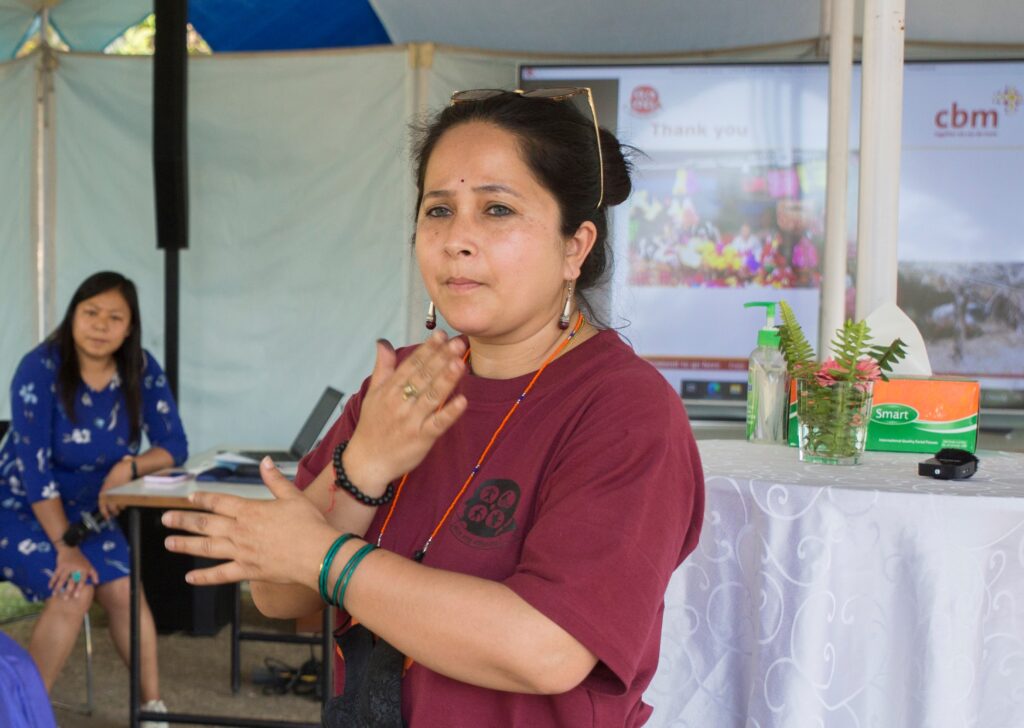
If we want to achieve the 2030 Sustainable Development Goals it is essential to include persons with disabilities and make educational opportunities inclusive.
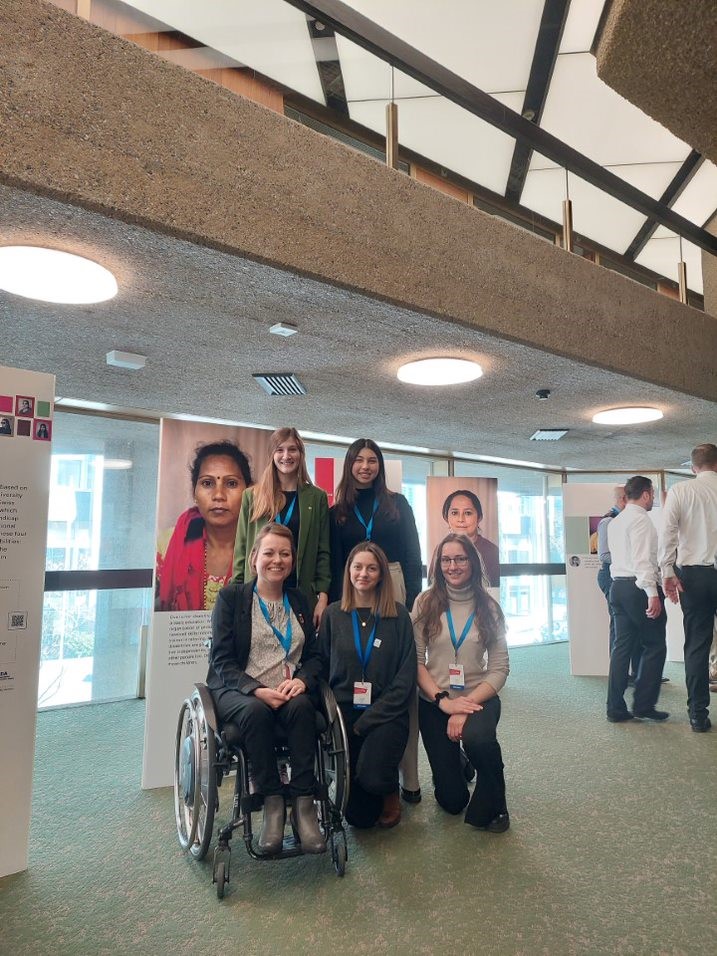
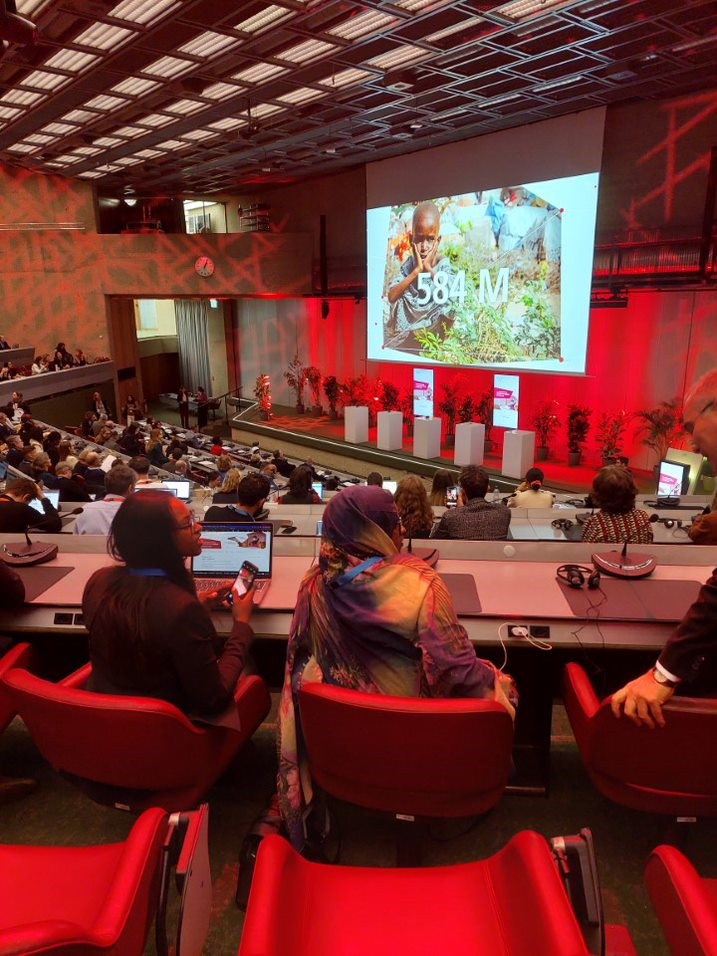
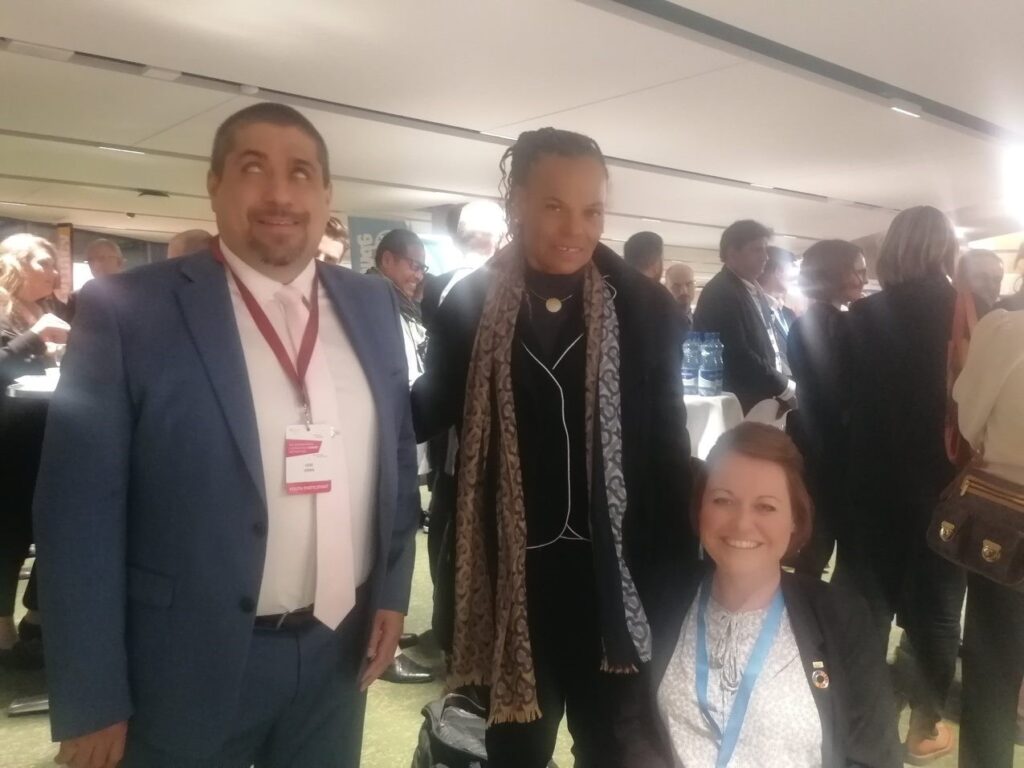
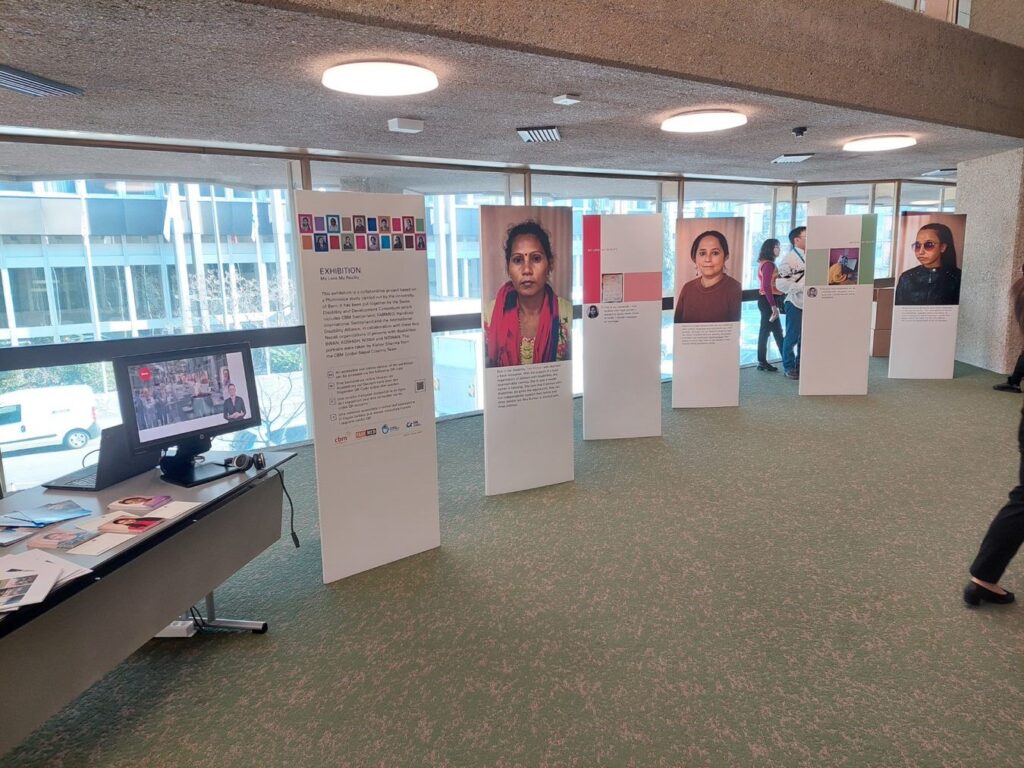
[custom-twitter-feeds]
Key Messages
How can Switzerland ensure the rights of persons with disabilities in the Global South?
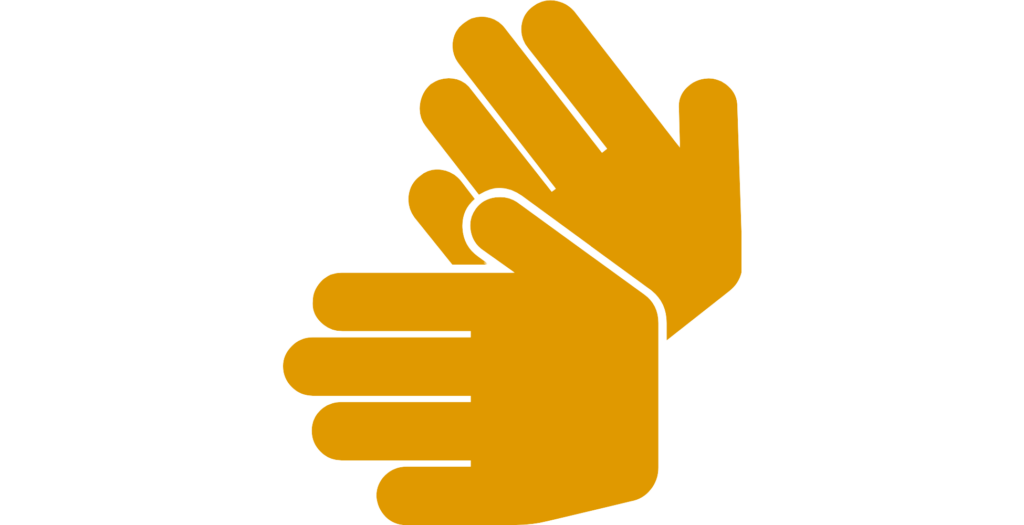
Linguaggio dei segni LIS

No guidelines, no priority. Switzerland needs guidelines to inform its work on the inclusion of persons with disabilities in its international cooperation. Current efforts on disability inclusion are small scale, ad-hoc and mostly segregating.

Nothing about us, without us! Switzerland must ensure the full and active participation of persons with disabilities throughout all processes affecting them, including in its international cooperation. Arrangements must be made to enable their participation.

What isn’t counted, doesn’t count. Switzerland has committed itself to be a leader on data collection, but it is not systematically collecting and disaggregating data on disability in its international programmes.

Leave no one behind in humanitarian crises. Persons with disabilities are disproportionately affected in humanitarian crises. Switzerland committed itself to making its humanitarian action inclusive of persons with disabilities, but it is not clear how it is living up to its commitment.

What isn’t budgeted for, doesn’t get done. Switzerland must sufficiently budget for the inclusion of persons with disabilities in its international cooperation and must commit itself not to finance programs and services that segregate persons with disabilities from the community.

